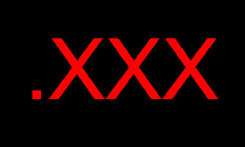Dot-xxx proposal under consideration

While legislative pressure has been revived to create a dot-xxx Internet domain in order to better filter pornographic Web sites, some groups, including the American Civil Liberties Union, think the idea would bring nothing but trouble.
"It's not going to make a whole lot of difference" in stopping minors from finding pornography, said Marv Johnson, legislative council for the ACLU.
The proposal, which was originally shelved in December, was brought back last week by Sens. Max Baucus, D-Mont., and Mark Pryor, D-Ark., who have introduced the Cyber Safety for Kids Act of 2006.
The bill requires the Department of Commerce to work with global Internet governing body Internet Corporation for Assigned Names and Numbers to develop a domain name system to house material considered harmful to minors.
"This bill will section off a piece of the Internet neighborhood and confine adult sites to one location," Baucus said in a news release.
Baucus said that the key to the dot-xxx domain is the added ease in blocking all dot-xxx sites.
"It will give parents more tools to protect our kids," he said of the bill. "Parents should not have to worry about their children surfing into Web sites for adults -- either on purpose of by accident."
Pryor said that not enough has been done thus far to protect children from online pornography.
"While the Internet is an exceptional learning tool, it allows children the same easy access to Web sites about space shuttles as it does to pornography," he said. "Turning a blind eye to this problem has allowed the online pornography industry to expand and enabled kids to view adult content at very young ages."
While the two senators are enthused about the dot-xxx idea, the ACLU does not think it will provide a very effective means of shielding pornography from children.
Johnson said that by categorizing pornography into its own domain, the bill would help minors who try to look up pornographic Web sites.
"It's going to be a flashing neon light for minors who want to find pornography," Johnson said.
Johnson noted that the domain would be categorized by a content-based restriction, which is disfavored by the courts.
"They will have to show that there is a compelling interest and that it's the least obtrusive means," he said. Johnson explained that while previous cases have established that protecting children from pornography is a compelling interest, this bill fails to be the least obtrusive means of doing so.
Johnson noted that the working of the bill refers to "perverted sexual acts" but does not define that phrase, leaving it very ambiguous and potentially overreaching.
Additionally, since there is no delineation among different ages of minors, the bill indicates that Web sites inappropriate for young minors should be grouped with those inappropriate for older minors.
"If something is inappropriate for a 5-year-old, does that mean a 17-year-old shouldn't view it," he said.
Johnson suggested that instead of creating an exclusionary new domain, people focus on creating a dot-kids domain in order to filter the most child-friendly sites together. This idea has been tried, but "has not proven terribly successful," Johnson said.
He also suggested stronger filtering and blocking programs, and user rating systems, as well as better educating minors about pornography.
"Any time the government asks, 'how can we stop information?' it generally leads to the wrong conclusion," Johnson said.
Copyright 2006 by United Press International

















